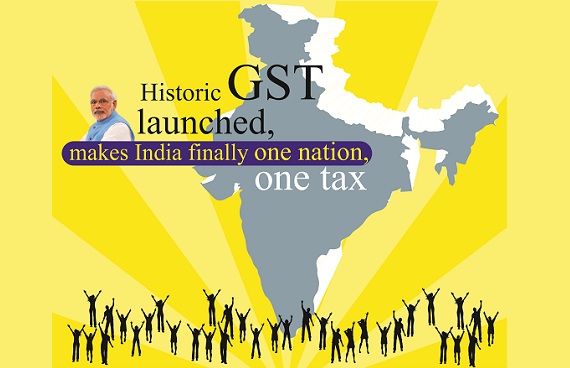The launch of GST is perhaps India’s most significant and complex economic reform and the largest yet most complex change in the world.
COAI, the apex industry association representing all the major telecom service providers and allied internet and technology companies in the country, congratulates the government and welcomes the implementation of the Goods and Service Tax (GST).
Addressing the nation at midnight, Hon. Prime Minister Shri Narendra Modi, described the GST as “Good and Simple Tax” which would ultimately benefit the people and pointed out that GST will replace more than a dozen central and state taxes or Value Added Tax (VAT) to create a seamless unified market for the $2 trillion Indian economy. The telecom industry whole heartedly welcomes the GST rollout.
Calling it an important step for a new India, Mr. Rajan S. Mathews, Director General, COAI, said “This is a momentous occasion for us and the entire nation must celebrate theGST rollout. GST is the biggest reform since Independence, far outweighing even the liberalisation of the 90s in its scope and scale. We laud the vision of the Prime Minister Shri Narendra Modi and its successful rollout by the Finance Minister Shri Arun Jaitley. The introduction of a single tax across the country will make transactions across the country much easier and significantly reduce complexities in taxation. The Indian telecom Industry remains committed towards working with the government shoulder to shoulder and has been preparing for the transition in all earnest over the course of the last year. The tremendous amount of work that the Government and the industry has put in for the July 1 roll-out of GST deserves appreciation.”
Telecom, is all pervasive and as essential service which is today the backbone of the nodal government mission mode programs like Digital India, Make in India, Skill India etc. All the policy changes of this size are bound to face teething problems initially. As long as the government and Industry work together, for the greater good, we are certain that all issues will get resolved. We are also confident that we will get all the required support from the government, DoT and the Finance Ministry for this and both the industry and the government will continue to work in the best interests of the consumers and the nation keeping offerings competitive and innovative.
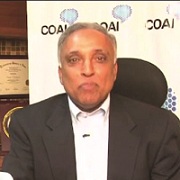
Mr. Mathews further added, “This sector has always been the crown jewel, with the achievement of over a billion connections and one of the highest contributions to the GDP. Today it is saddled with an unprecedented debt of more than INR 4.5 lakh crore, with revenues of less than INR 2 lakh crore, a return on capital employed averaging around 1%, we are therefore hopeful that the government will consider our plea and revise the current rate of 18% which is fairly high to the requested rate of 5% which is better aligned with telecom being an essential service and critical infrastructure.”
Once the regime settles in, we can look forward to it spurring the economy by incentivizing manufacturing and making business decisions independent of taxes. The industry will continue to work with the government, furthering the hon. Prime Minister’s vision for a fully connected and Digitally empowered India.
Mr. Syed Tajuddin, CEO, Coolpad India
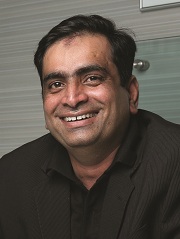
“The impact of GST on smart phone industry will directly or indirectly impact Government of India’s Make in India push as well as digital India mission. We have witnessed significant increase in units that manufacture and assemble mobile handsets due to various financial advantages given to local manufacturers.”
“With no duty differential, manufacturing in India will always be better as lots of taxes will go away under GST. For primarily local manufacturers like us, it will be benefiting in the long run and lots of other smart phone brands will be focusing on the Make in India plans.”
“Coolpad has been manufacturing in India for more than 10 months and around 90 % of our devices are made in India. We are totally prepared to align ourselves as per GST tax systems. Yet we feel that a better Phased manufacturing programme should be rolled out by the government, to better the benefits of local manufacturing of handsets in India, as it will boost Make in India mission.”
“As of now as a handset manufacturer, we are partially relieved as the tax levied on handsets is 12%, still 5 % tax category could have been more appropriate. We are expecting some special incentives for handset manufacturers who are focusing on Make in India and are looking forward to increase their local manufacturing capability.”
“For online retail industry, GST will be a bag of mixed emotions as it will be beneficial for suppliers while not so beneficial for e-commerce market places. The small and medium retailers who are using the marketplace will be the most affected.”
While GST will balance the terms between offline and online market taxation and will be a good move, in the long run. When it comes effect of GST on e-commerce players, we stand committed with Amazon India, our exclusive sales and distribution partner.”
Sumeer Chandra, MD, HP Inc. India
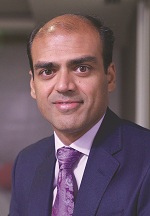
“We believe Goods and Services Tax (GST) will act as a catalyst to speed up the digitization drive across the nation as small and medium businesses look to transition to a transparent tax system. With GST, PC adoption is expected to accelerate as they will play a pivotal role in enabling compliance and adoption of the new regime. As a longstanding partner in India’s digital transformation, HP continues to support the government and all stakeholders in enabling this reform and we are also offering an integrated GST solution that allows traders and MSMEs to make a smooth transition.”
Rahul Garg, Founder & CEO – Moglix,

“As we head towards the revolutionary tax regime – Goods and Services Tax (GST) roll-out, it is indeed one the historical moment for the people of India. While a few of us have already put the processes and systems in place, many sectors are still trying to understand how technology and right partnership can help them with compliance.
We at Moglix have developed Green GST – an affordable SAAS based technology tool to empower the USD 300 Billion manufacturing segment in India with almost zero pricing as a part of our commitment to making manufacturing supply chain GST ready.
I congratulate the Government on translating its vision of One Nation, One Tax into reality. While some disruption is expected initially but I am certain that each one of us will contribute to make GST a success.”
Anurag Garg, Vice President, Solar and Energy Storage Busines, Schneider Electric India.
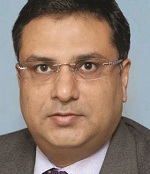
Energy Storage Busines
“The government’s decision to levy 5% GST on solar panels as against the earlier classification of 18% comes as a major reprieve to the industry. The fact that it is still higher than the present effective tax rate of zero will, no doubt, impact project costs marginally. Also, under the new tax regime, solar has been placed at par with coal which seems to indicate that the country is moving towards grid parity in true sense. This augurs well for the long term energy security of the country. This, quite rightly, addresses the unique energy dilemma that India faces considering that close to 18,000 villages do not have access to energy, but, at the same time, the country has a strong commitment to reduce its carbon footprints.”
Mr. Prashant Modi, Managing Director and CEO- Great Eastern energy Corporation Limited
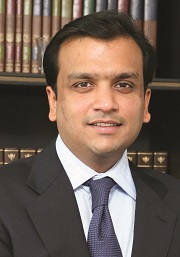
“We congratulate the government for implementing the biggest tax reform. GST is one of the most-awaited reform measures done for industry.
We hope the government brings natural gas under GST @ 5% at the earliest in order to enhance domestic exploration & production of natural gas. This would increase energy security and help in reducing our dependency on imports.
Further, the launch of OALP and NDR by the Government is a bold and landmark event for the Indian E&P sector. The keenly awaited policy will boost investor confidence and attract further investments which will help in achieving the Government’s objective to reduce hydrocarbon imports by 10%.”
 Nageswari S, Senior Vice President –Finance,Tata Communications
Nageswari S, Senior Vice President –Finance,Tata Communications
“The goods and services tax (GST) is seen as one of the biggest tax reforms in India in a bid to unify 29 states, 1.3 billion people and create a common market zone. The nationwide single tax – GST is set to replace a mix of state level and national taxes. We at Tata Communications have been one of the early adapters to have embarked on the GST implementation journey well in advance of the go-live date. A cross-functional task force that included teams from billing, sales support, customer delivery, supply chain, business operations, IT & process experts along with tax champions, was formed to evaluate the impact on revenue and costs and to adapt our processes and IT systems in accordance with the changes required to seamlessly implement GST.
Tata Communications’ global operations providing complete communication solution to global customers required substantive changes in its processes and IT systems to adapt to the new GST system. Our aim was to create robust IT systems to ensure seamless reporting and compliance under the new GST scheme. To ensure IT readiness we undertook a balanced approach and looked at both in-house development and outsourcing; effecting parallel changes aligned to the “ONE GST” change template. With only a few hours left for the roll out of GST, we, at Tata Communications, are well-equipped to deal with the change.
We believe that the government is moving in the right direction in implementing a unified, indirect tax regime which will help in ushering transparency and seamless execution capabilities through digitalisaton.”
Mr. Ritukar Vijay (Head of Autonomous Technologies & Business Strategy) at The Hi-tech Robotic Systemz Ltd.

‘’The technology sector has been witnessing off late a major push by the Indian Government. There is a need to further strengthen the sector and explore the world of opportunities which lies with automation and artificial intelligence (AI). Road security is also a prime concern for the India as most road fatalities in the world take place in our country. With GST coming in, a major push is expected in long haul movement, which further strengthens need of taking proactive measures in preventing road accidents. AI can help a great deal in curtailing the problem with the use of adequate Autonomous & Driver Assistive technology & with support from govt. AI products can pave way for safer roads. In addition, govt can also accelerate growth of self-driving ecosystem in India by making provisions for on road testing of autonomous technology . We are hoping for a much more precise and futuristic approach by the Government for the AI/Self Driving Autonomous Vehicles sector’’.
If you need anything else then kindly do let me know.
Mr. Pulkit Punj, Director of AnG India Ltd.

With the GST being implemented, the entire tax structure will be consolidated and all indirect taxes shall fall under the GST tab. However, there are still reservations regarding it throughout the industry. Today, most IT service providers have a multi-locational presence with the preferred mode of service tax compliance being on a centralized basis from a single location. As opposed to paying service tax to a single jurisdictional service tax authority, the service provider may well be required to pay GST (State GST, Central GST, IGST, as the case may be) to GST authorities across multiple States. What is presently not clear is whether the rules will provide for the service provider to pay an IGST on such supplies from his location or in effect require for the service provider to obtain a GST registration in each relevant State (especially in the case of services that are taxed based on the location of their performance). Either way, the service provider would need to map the relevant place of supply for each of his supplies and report compliance basis the same. An important related aspect in this regard is for the service provider to ensure that GST credits pertaining to the supplies are captured and availed in the location from where output GST is paid.
An important related aspect in this regard is for the service provider to ensure that GST credits pertaining to the supplies are captured and availed in the location from where output GST is paid.
Another aspect to this is the mandatory shift that is required by the government, enabling some IT companies to build up software’s and patch works that help organizations in applying the GST regime in their business. – Mr. Pulkit Punj, Director of AnG India Ltd.

Mr. Gopal Balachandran, Chief Financial Officer, ICICI Lombard said, “The implementation of Goods & Services Tax is a significant milestone for the country. Though, insurance customers will have to pay a higher rate of GST rate @18% compared to 15% service tax earlier, the overall impact should be positive, given the convenience and simplicity associated with a single tax regime.”



